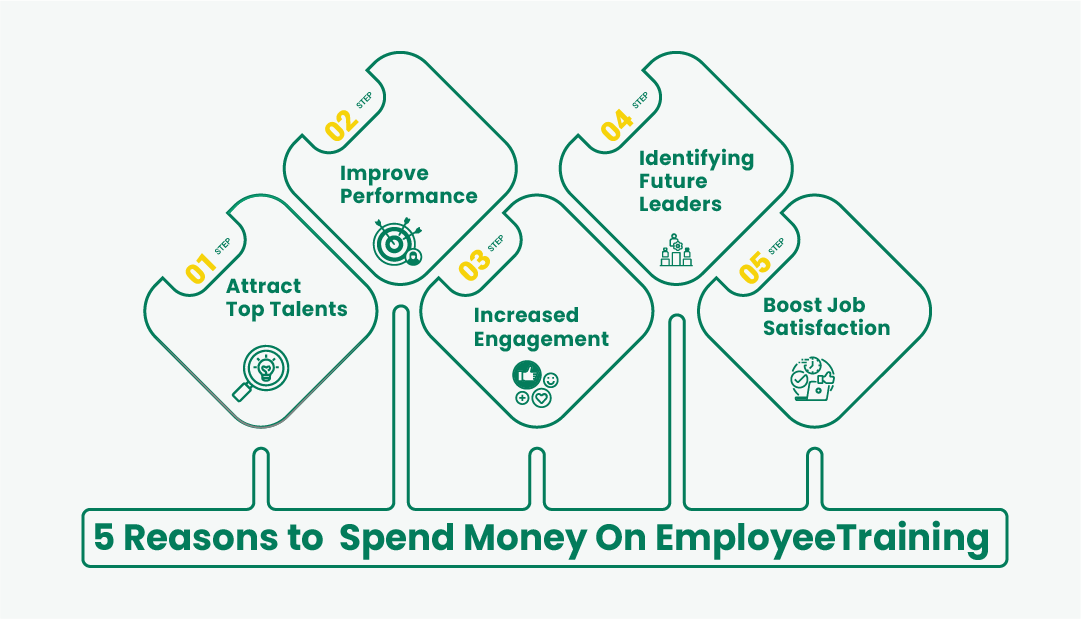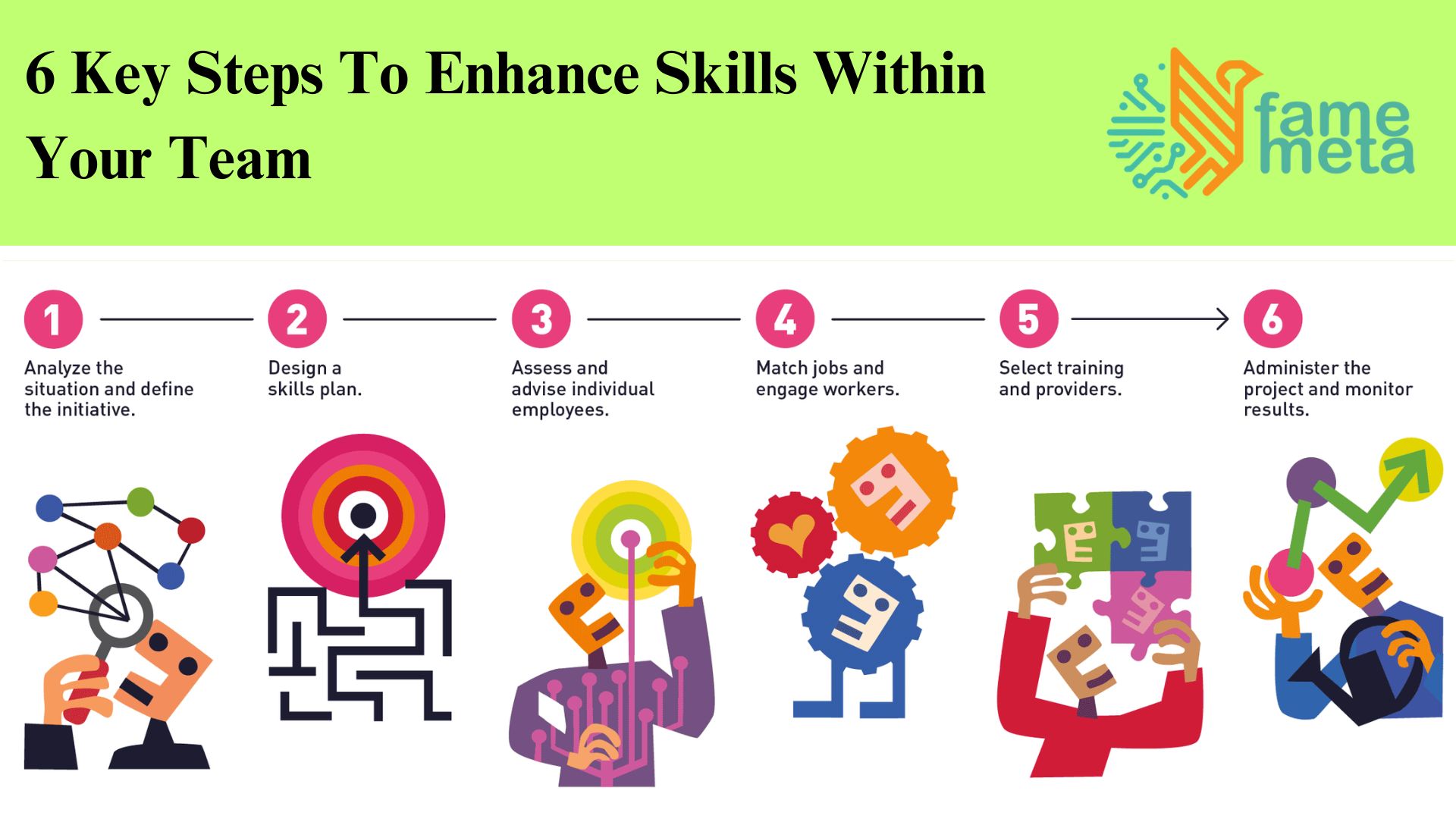The future belongs to those who are willing to learn, adapt, and grow. Embrace change, upskill today, and lead tomorrow!

Introduction
The rapid advancement of technology is reshaping industries worldwide, including those in the traditional sector. Industries such as manufacturing, retail, and agriculture, which have long relied on manual processes and conventional business models, are now facing digital disruption. The adoption of technologies like automation, artificial intelligence (AI), big data, cloud computing, and digital platforms is no longer an option but a necessity. Companies that fail to embrace digital transformation risk losing their market position to more technologically advanced competitors.
To stay relevant in this changing environment, businesses must prioritize reskilling and upskilling their workforce. Reskilling refers to training employees to take on entirely new roles that require different skill sets, while upskilling focuses on improving their existing competencies to adapt to technological advancements. Both approaches are critical in ensuring that workers remain competitive and contribute effectively to business growth.
One of the key platforms that facilitate this transition is Fame-Meta, an eLearning platform specifically designed for working adults. Fame-Meta provides a wide range of courses that enable employees in traditional sectors to acquire new skills and adapt to the evolving demands of the digital economy. By offering flexible, self-paced learning options, Fame-Meta ensures that workers can balance their professional responsibilities while upgrading their capabilities. This article explores the importance of reskilling and upskilling, the challenges businesses face, and how leveraging platforms like Fame-Meta can help industries successfully transition into the digital age.
Why Reskilling and Upskilling Are Essential for the Traditional Sector
The traditional sector has long been dependent on manual labor, but the rise of digital technologies is transforming the way businesses operate. Companies now rely on automated systems for production, cloud-based platforms for data management, and AI-driven insights for decision-making. Without proper training, employees may struggle to keep up with these changes, leading to reduced productivity and job insecurity.
One of the main reasons reskilling and upskilling are necessary is the rapid shift in job roles. Many jobs that were once performed manually are now automated, eliminating the need for certain tasks while creating new opportunities that require digital proficiency. For example, a factory worker who previously operated machines manually may now need to learn how to use smart manufacturing software that integrates automation and AI. Similarly, a retail employee who once focused solely on in-store customer service must now develop skills in e-commerce, digital payment systems, and online customer engagement.
Another key benefit of reskilling and upskilling is the enhancement of productivity and efficiency. When employees have the necessary skills to operate digital tools effectively, they can complete tasks faster, make fewer errors, and optimize business operations. For example, using cloud-based inventory management systems allows warehouse employees to track stock levels in real-time, reducing delays and minimizing the risk of overstocking or shortages.
Furthermore, investing in employee training helps businesses retain valuable talent. As digital transformation accelerates, many employees worry that their jobs may become obsolete. Companies that provide reskilling and upskilling opportunities demonstrate a commitment to workforce development, which can boost employee morale, improve job satisfaction, and reduce turnover rates. By offering structured learning programs through platforms like Fame-Meta, businesses can help employees feel more secure about their future career prospects.
Additionally, companies that invest in upskilling their workforce gain a competitive advantage in the market. Businesses that embrace digital transformation and equip their employees with the necessary skills can respond more quickly to industry trends, implement new technologies efficiently, and offer better products and services. This adaptability is essential in ensuring long-term success in an increasingly digital world.

Challenges in Implementing Reskilling and Upskilling Programs
While the benefits of reskilling and upskilling are clear, many companies in the traditional sector face challenges in implementing effective training programs. One of the primary obstacles is the lack of access to digital training opportunities. Many employees, particularly those in lower-income or rural areas, struggle to find suitable courses that align with their needs. Traditional training programs are often time-consuming, expensive, and inconvenient, making it difficult for working adults to participate. Fame-Meta addresses this issue by offering flexible, self-paced courses that employees can complete online at their convenience, removing barriers related to time and location.
Another major challenge is resistance to change, especially among older employees who may feel intimidated by digital technologies. Many workers in the traditional sector have been using the same methods for decades and may be reluctant to adopt new tools or workflows. To overcome this resistance, businesses must provide easy-to-follow training programs that focus on practical applications. Fame-Meta’s interactive and user-friendly courses are designed to make digital learning accessible for individuals at all skill levels, ensuring that even employees with minimal tech experience can adapt effectively.
Financial constraints also pose a significant barrier to workforce training. Many small and medium-sized enterprises (SMEs) in the traditional sector lack the budget to invest in large-scale reskilling initiatives. Without adequate funding, businesses may struggle to provide employees with the necessary resources for professional development. However, Fame-Meta offers cost-effective training solutions, allowing companies to upskill their workforce without incurring high expenses. Employers can select specific courses that align with their industry requirements, ensuring a targeted and efficient learning experience.
Additionally, businesses often fail to measure the effectiveness of their training programs, making it difficult to determine whether employees have successfully acquired the intended skills. Without clear performance metrics, companies risk spending time and resources on ineffective training initiatives. Fame-Meta solves this problem by providing built-in tracking tools that allow employers to monitor employee progress, measure skill improvements, and adjust training programs as needed.
Effective Strategies for Reskilling and Upskilling

To successfully implement reskilling and upskilling programs, businesses must adopt a structured approach that aligns with their workforce needs. One of the first steps in this process is to identify skill gaps within the organization. Before launching training initiatives, companies should assess their employees’ current competencies and determine which digital skills are necessary for future roles. This can be achieved through surveys, job performance analysis, and consultations with industry experts. By understanding the specific skill shortages, employers can develop targeted training plans that effectively prepare workers for the evolving job market.
Once skill gaps have been identified, businesses should offer practical, industry-specific training that focuses on real-world applications rather than theoretical concepts. Employees in traditional sectors such as manufacturing, retail, logistics, and customer service benefit most from hands-on experience with digital tools and automation technologies. Fame-Meta, an eLearning platform designed for working adults, provides tailored courses that help employees acquire the skills needed for their respective industries. By aligning training content with job requirements, companies can ensure that their workforce is not only prepared for digital transformation but can also apply their learning directly to their daily tasks.
Given that many employees juggle work and personal responsibilities, businesses should implement flexible learning options to accommodate their schedules. Online platforms like Fame-Meta allow employees to learn at their own pace, eliminating the constraints of traditional, classroom-based training. This flexibility ensures that workers can upskill without disrupting their current job duties, making digital learning more accessible and practical. Additionally, incorporating a mix of self-paced modules, live virtual sessions, and hands-on projects can enhance engagement and improve learning outcomes.
To build a workforce that continuously adapts to technological changes, companies must encourage a culture of lifelong learning. Businesses should incentivize skill development by rewarding employees who complete training, offering promotions based on acquired skills, and integrating digital learning into everyday workflows. When employees see that learning leads to career growth and recognition, they are more likely to stay motivated and actively participate in upskilling initiatives. Creating an environment that values continuous improvement can help organizations remain competitive in a rapidly changing business landscape.
Finally, businesses must track and evaluate the effectiveness of their training programs to ensure they deliver the desired impact. Simply providing training is not enough—companies need to measure progress by monitoring employee performance, gathering feedback, and analyzing learning outcomes. Fame-Meta’s analytics tools enable businesses to assess how well employees are absorbing new skills and whether the training is translating into improved productivity. Regular evaluations allow companies to refine their reskilling and upskilling strategies, ensuring that they remain relevant and effective. By adopting these structured approaches, businesses in the traditional sector can successfully transition to a digital-first workforce and maintain long-term growth in an evolving economy.
Conclusion
The future of work is rapidly evolving, and businesses in the traditional sector must prioritize workforce development to remain competitive. Reskilling and upskilling are not just about learning new technologies; they are about adapting to change, improving efficiency, and securing long-term business success.
Platforms like Fame-Meta play an important role in making digital training accessible for busy working adults, providing them with the knowledge and skills needed to excel in the digital economy. By embracing continuous learning and leveraging flexible eLearning solutions, companies can ensure that their employees remain productive, engaged, and ready for the future of work.



